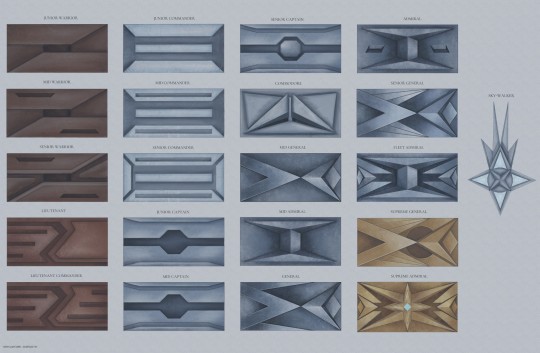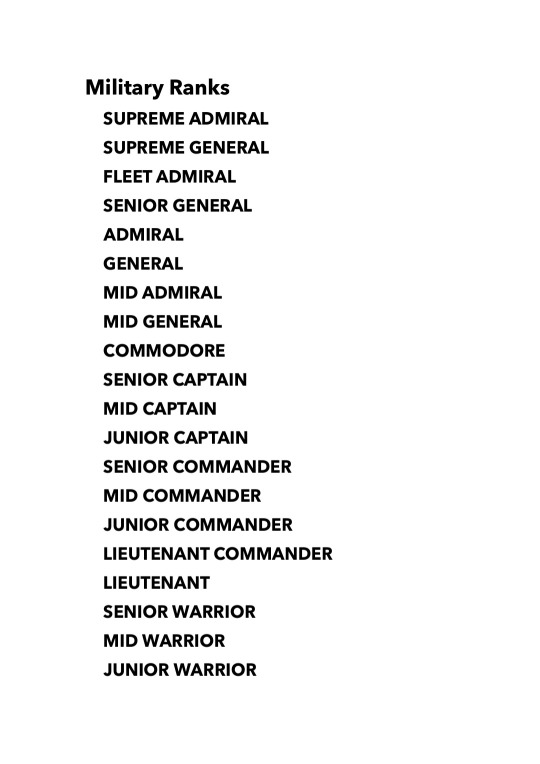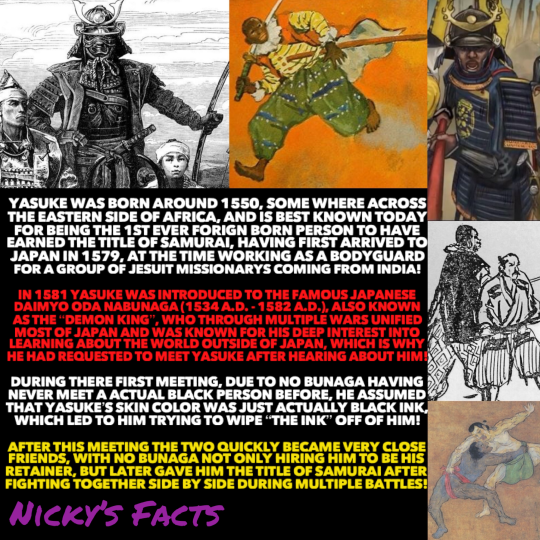#military excellence
Explore tagged Tumblr posts
Text
youtube
#youtube#military excellence#medical simulation#medical excellence#medical school#Army Medical School#health care training#healthcare professionals#military training#Army medics#Best of The Best#Army training#maneuver center of excellence#Army achievements#Army values#tactical medicine#healthcare training#medical competition#health professionals#soldier#fort benning
1 note
·
View note
Text

Charles Calvin Rogers (September 6, 1929 – September 21, 1990) was a recipient of the highest military decoration in the United States, the Medal of Honor, for his actions during the Vietnam War. A lieutenant colonel at the time, he became the highest-ranking Black soldier in the U.S. military to receive this honor. A career officer who entered the service as a second lieutenant commissioned by ROTC when the military was still racially segregated, he retired after 32 years in the United States Army with the rank of major general.
THEY ARE TRYING TO ERASE HISTORY.
#black literature#black tumblr#black history#black excellence#black community#civil rights#black history is american history#blackexcellence365#united states military#usa#united states#medals of honor#medals
150 notes
·
View notes
Text

#senegal#senegalese#blacklivesmatter#black lives matter#black power#black unity#french#france#military#black people#african#africa#black excellence#black liberation#anti colonization
57 notes
·
View notes
Text
Took me some time to finish this project. Chiss Military Ranks insignias designs



#chiss ascendancy#chiss expansionary defense fleet#chaos rising#greater good#lesser evil#chiss military ranks#visualizing chiss ascendancy lore#sky-walkers deserve their own insignia pin#ar'alani will make an excellent supreme admiral one day
179 notes
·
View notes
Text
also I got a lot of thoughts on how eliot having that fight with his dad and then immediately shipping to basic training meant he ended up isolated in a way that made him highly motivated, highly trainable, and also extremely easy to fuck in the head in useful ways. which worked out great for the US military and later on, for moreau.
#maybe he would've gone however long without seeing his dad again after the fight anyways who knows#but 10+ weeks of getting trained into being Part Of A Group with a Specific And Noble Purpose probably didn't help#I think the turnaround from feeling frustrated and stuck and fighting with his dad#to then excelling in an environment where you can succeed and be valued by following a clearly laid-out set of rules#wouldve fostered intense loyalty.#he feels like he's good at this he feels like he's proving his dad wrong he feels like the army's his only family now#which puts him in a dangerous mindset when it comes to what he's willing to do.#then later on increasing disillusionment with the military + a sense of alienation due to moral injury#-> even worse isolation that would've left him extremely vulnerable to moreau.#leverage#eliot spencer
35 notes
·
View notes
Text










𝙅𝙖𝙧𝙝𝙚𝙖𝙙 2005
#jake gyllenhaal#2000s#movies#jarhead#1990s#gulf war#film#war#jamie foxx#black excellence#us marines#sam mendes#usmc#military#cinema#roger deakins#cinematography#90s#marines#anthony swofford#🔥
21 notes
·
View notes
Text
Shippers (especially Taekookers) obsession with Jimin and his family is getting worrisome. Like WDYM you're STALKING his dad and trying to find out if his brother is online like ya'll did with jk's brother tagging him in shipping stuff or asking personal info?
What do you mean you're stalking his dad's café on IG 24/7, getting on his DMs, trying to police what he should or shouldn't post or USING what he chooses to post as validation for your ship? When ya'll are the weirdos setting up Jimin with your equally weirdo shipping gifts (and FUCK that joker HAG, Lupita).
Leave their families ALONE.
Its one thing to visit the place and post about it, but downright STALKING his dad? That's messed up.
And Jokers need to stop with the weirdo posts, taunting Taekookers with their BS shipping wars too. 'Cause none of ya'll are out here having to clean up the mess hours later and now we got (USELESS) little 7s thinking PJMS are jokers too or that we condone the shit you pull.

Man I hope that prediction comes true about Jimin coming back from the military completely changed, saying fuck everyone and just focusing on HIMSELF.
#I'm ready for Ice Prince Jimin to make a comeback#leave him alone man#and leave his dad alone too#the poor guy had to delete all the post he had showing pride for his son excelling int he military thanks to obsessed freaks#free jimin from shippers#jimin deserves better
25 notes
·
View notes
Text
In a moment of danger, Harriet Tubman chased a chicken to avoid capture.
She was ready to risk her dignity for freedom.
Would you risk your comfort zone?
17 notes
·
View notes
Text

Haven’t written any new substantive lyrics in almost a year but luckily world literature forced me to pump out this absolute banger of a queer angst ballad for my final presentstion
#Title is “A Hell I didn’t choose”#Inspired by Moffie by Andre Carl Van Der Merwe#EXCELLENT book please read if you want a deliciously cathartic memoir about being closeted in the military
18 notes
·
View notes
Text

The Cold Metal of Medals: Markers of Achievement and Superiority
The gleam of medals on a uniform is more than a mere decoration—it is a testament to a man’s authority, his accomplishments, and the respect he commands. For the Alpha male, medals are not just tokens of recognition but symbols of his unyielding dominance and superiority. Each medal tells a story, a chapter in the life of a man who has mastered himself, his environment, and those under his command.
This essay delves into the symbolism of medals, their historical significance, and their role in reinforcing the authority and legacy of the Alpha male.
The Historical Legacy of Medals
The tradition of awarding medals dates back to ancient civilizations, where rulers and warriors were recognized for their bravery, leadership, and service. From the Roman Empire’s golden phalerae to the chivalric orders of medieval Europe, medals have always served as tangible representations of excellence and status. In the military traditions of the 19th and 20th centuries, they evolved into formalized symbols of merit, earned through acts of valor, service, and discipline.
For the Alpha male, medals are the modern embodiment of this ancient tradition. Worn proudly on his chest, they speak to his mastery over the challenges he has faced and the victories he has achieved. Each one is a visual declaration of his worthiness to lead.
The Role of Medals in the Alpha’s Command
An Alpha’s uniform is incomplete without the glint of medals on his chest. These awards are not merely ornamental—they are assertions of his dominance, achievements, and unwavering commitment to excellence. For subordinates and observers alike, they are a powerful reminder of the Alpha’s authority.
The Symbolism of Medals:
1. Authority: Medals signify the Alpha’s right to command, earned through proven success and dedication.
2. Superiority: The sheer weight of medals distinguishes the Alpha from his subordinates, marking him as a figure of higher rank and capability.
3. Legacy: Each medal contributes to the Alpha’s enduring legacy, a visual record of his impact and influence.
Medals serve as a bridge between the Alpha’s past achievements and his present authority, cementing his position at the top of the hierarchy.
The Arrangement of Medals: Precision and Order
For the Alpha male, the display of medals on his uniform must reflect the discipline and refinement that define him. Each medal must be polished to perfection, arranged with meticulous precision, and displayed in a manner that amplifies his commanding presence.
The Alpha’s Medal Display:
1. Placement: Medals must be positioned on the left breast of the uniform, arranged in strict order of precedence.
2. Symmetry: The arrangement must be symmetrical, creating a sense of balance and order that mirrors the Alpha’s disciplined character.
3. Polish: Each medal must gleam under the light, a testament to the Alpha’s attention to detail and the respect he commands.
The proper arrangement of medals is not merely a matter of protocol—it is a reflection of the Alpha’s mastery over every aspect of his appearance and demeanor.
The Psychological Impact of Medals
The sight of a chest adorned with medals has a profound psychological effect on both subordinates and observers. It evokes feelings of admiration, respect, and, in some cases, intimidation. For the Alpha, this impact is a crucial aspect of his ability to lead and command.
Psychological Effects:
1. Inspiration: Medals inspire admiration and loyalty among subordinates, serving as a reminder of what is possible under the Alpha’s leadership.
2. Intimidation: The sheer number and prominence of medals can instill a sense of awe and submission in those who stand before the Alpha.
3. Reinforcement of Hierarchy: Medals visually reinforce the structure of authority, leaving no doubt as to who holds the highest rank.
The psychological power of medals lies in their ability to communicate the Alpha’s dominance without the need for words.
Medals as a Reflection of the Alpha’s Legacy
Each medal on an Alpha’s chest is a chapter in the story of his life—a story of challenges faced, victories won, and the unwavering pursuit of excellence. Together, they form a legacy that will endure long after the Alpha has left the field of battle or the halls of power.
Sir Cedric’s Reflections:
“As I pin each medal to my chest, I am reminded of the trials I have faced and the victories I have claimed. These are not mere tokens—they are the marks of a life lived with purpose, discipline, and unyielding authority.
Each medal tells a story, not just of my accomplishments, but of the men and women who have stood with me, who have learned under my command, and who have felt the weight of my gaze. They are reminders of the standards I uphold and the legacy I leave behind.
To those who see these medals, know this: They are not just decorations. They are the proof of my superiority, the evidence of my mastery, and the symbols of my right to lead. Ask yourself—what marks have you earned? What legacy will you leave behind?”
Medals are more than pieces of metal—they are the embodiment of the Alpha’s achievements, authority, and legacy. Worn with pride and precision, they proclaim to the world that this man is not just a leader but a master of his domain. Through these symbols, the Alpha leaves an indelible mark on all who stand in his presence, a mark that will endure for generations to come.
#power#authority#command#discipline#leadership#mastery#alpha confidence#alpha mindset#alpha master#leather master#medals#medal of honor#military heritage#militaryuniform#flared breeches#riding breeches#riding boots#spurs#alpha white men#white excellence#crush the weak#iron will#alpha genetics#alpha power#alpha leader#alpha dominance#alpha perfection#alpha supremacy#absolute discipline#absolute dominance
10 notes
·
View notes
Text
gaz gives the vibes of someone who grew up well off and i can’t pinpoint why. he gives off old money vibes
#maybe he’s so pretty that he just exudes excellence???#but in his lore he was a gymnast from a young age so i’m picture an expensive private school +extracorriculars and tutors - the works#imagine a fancy military school too <3#i think it’s his sarcasm/attitude idk#but i love him#gaz <3#kyle gaz garrick#rachel speaks
31 notes
·
View notes
Text
only one month until i'm in another 8:30-11:30AM early modern europe course with the history dept's notoriously trad, reactionary conservative boomer prof who doesn't know i'm transgender & thinks i'm really smart

#he mentioned my essay to his 4000lvl seminar class!#said to them that his students in other classes aren't all that great#but 'one guy.... really gets it...' <- that's me#he's probably used to only like#annoying military history idiots who don't know what historiography is#because most smart people drop his courses when they hear his little political asides#i shouldn't say 'smart people.' most people who write history assignments well#really i shouldn't say idiots. <- trying to do better#but a couple of guys in last year's course you could tell were total war fanboys#who took the prof's military course before. & still do not have great analytical capabilities#<- me when i relish having something i excel at
7 notes
·
View notes
Text

#black literature#black history#black tumblr#black excellence#black community#civil rights#black history is american history#black girl magic#blackexcellence365#united states military#military#us military#american authors
80 notes
·
View notes
Text
sometimes you go months without writing, sometimes you hear one specific song you've never heard before and write 1500 words of mass effect fic without even trying when you should be doing other things
#mass effect#the song is good luck babe by chappell roan#the fic has nothing to do with the lyrics but the vibes are excellent#post apocalyptic military au who#shiara#mass effect trilogy#mine
16 notes
·
View notes
Text

Yasuke, the black samurai who helped the Demon King unify Japan!
🧑🏾🦱🇯🇵
#history#yasuke#samurai#oda nabunaga#1500s#japanese history#historical figures#african#the demon king#feudal japan#black history#culture shock#black samurai#cultural exchange#daimyo#military history#eastern africa#assassins creed shadows#ac shadows#sengoku period#black excellence#age of discovery
15 notes
·
View notes
Text
1/1 Patchwork Jacket by Melanatedwithlove (Mekhi McKenzie)
https://www.instagram.com/melanatedwithlove?igsh=dzAwazJyejFkaXVk
#black designer#pro black#black excellence#black love#black women#black beauty#soulfulconnections#bold and beautiful#reworked#military jacket#Spotify
3 notes
·
View notes